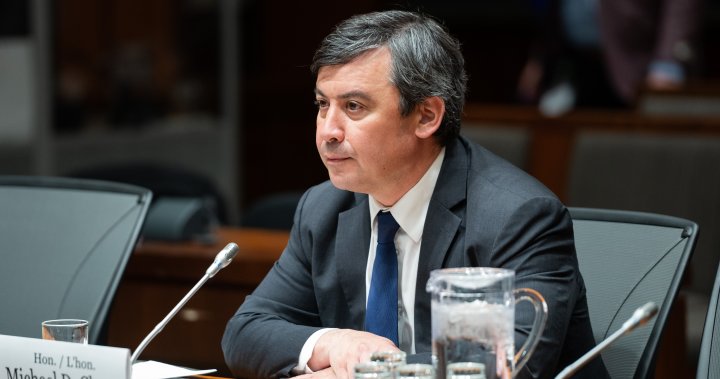A special House of Commons committee is set to meet to discuss allegations against two scientists who were fired from a high-security lab in Winnipeg. Conservative foreign affairs critic Michael Chong is requesting the committee to investigate the matter and call in witnesses, including officials from the Public Health Agency of Canada, Health Minister Mark Holland, and Democratic Institutions Minister Dominic LeBlanc. The scientists, Xiangguo Qiu and her husband Keding Cheng, were fired from the National Microbiology Laboratory in Winnipeg in January 2021 for possible breaches in security protocols. The lab is Canada’s only Level 4 laboratory designed to handle deadly contagious germs such as the Ebola virus.
The documents detailing allegations against Qiu and Cheng were released last month, revealing that Cheng violated safety and security policies by allowing restricted visitors into the lab and receiving mislabelled packages of biological samples from China. Qiu was found to have hidden her relationships with Chinese research associations and shipped materials from the lab without authorization. The case has attracted attention during the COVID-19 pandemic, with federal Liberals previously working to keep the documents secret. After a special ad-hoc committee was formed in 2022, Health Minister Mark Holland tabled the documents in Parliament, stating that the information was more about protecting PHAC’s reputation than national security concerns.
Holland emphasized that there was an “unacceptable” security situation at the Winnipeg lab, with lax adherence to security protocols in place. He acknowledged that in 2019, when Qiu and Cheng were working at the lab, Canada was engaged in efforts to secure the release of Canadians detained in China, and there were concerns about Chinese attempts to interfere in Canadian domestic affairs. However, Holland stated that no sensitive information was found to have left the lab. The documents range from everyday email communications to security assessments marked as “Canadian Eyes Only,” and their release is crucial for holding the government accountable.
Efforts to keep the information sealed were found to be aimed at avoiding embarrassment for PHAC rather than protecting national security, according to the ad-hoc committee formed in 2022. The case of Qiu and Cheng became a focal point for scrutiny as the government was dealing with attempts by China to influence the scientific community and interfere in Canadian domestic affairs. Holland indicated that the threat environment related to foreign interference was different in 2019, and while there were protocols in place, there was a lack of strict adherence to security measures. The release of the documents sheds light on the situation at the Winnipeg lab and the government’s efforts to address security concerns in the wake of the scientists’ dismissal.


